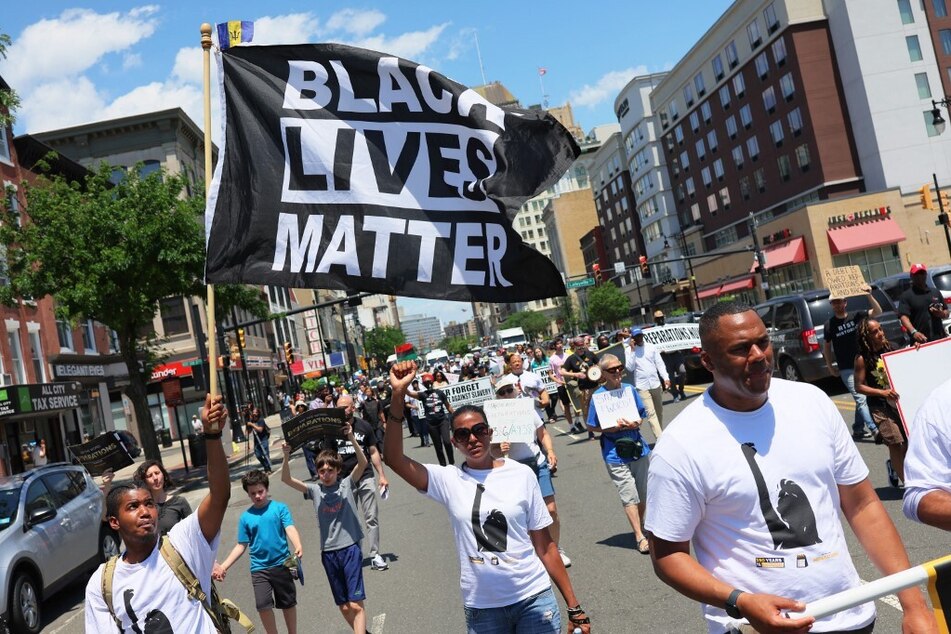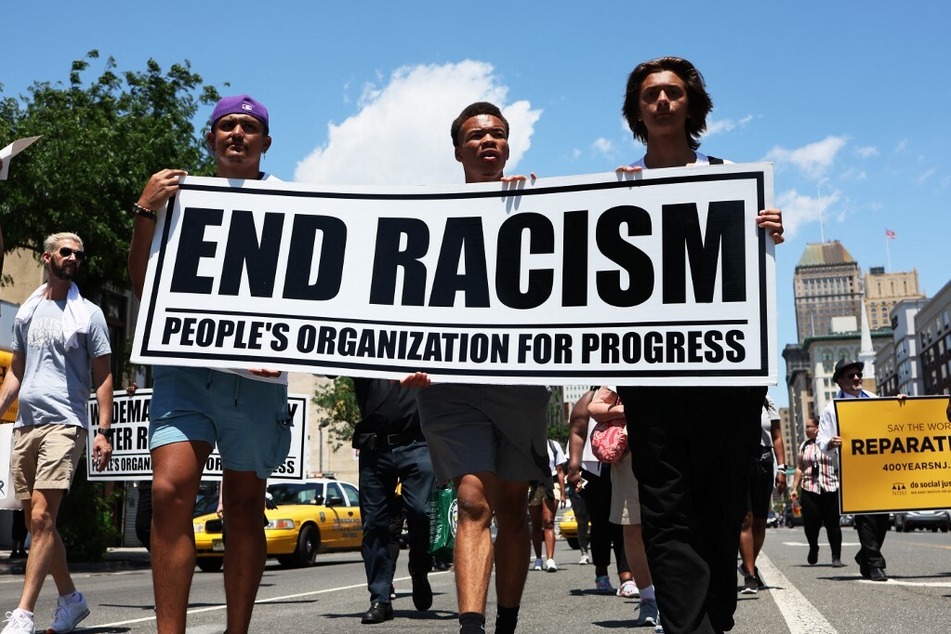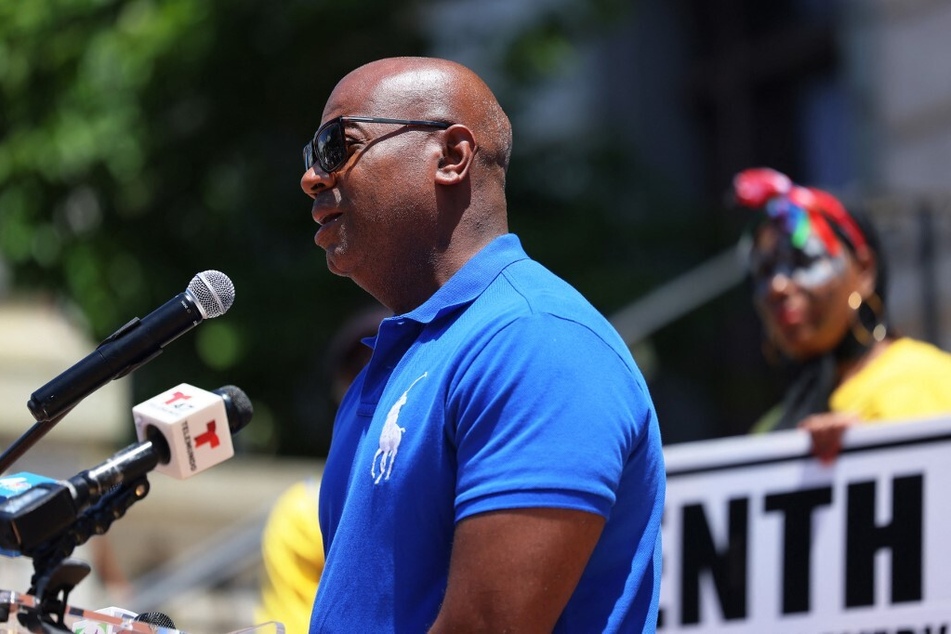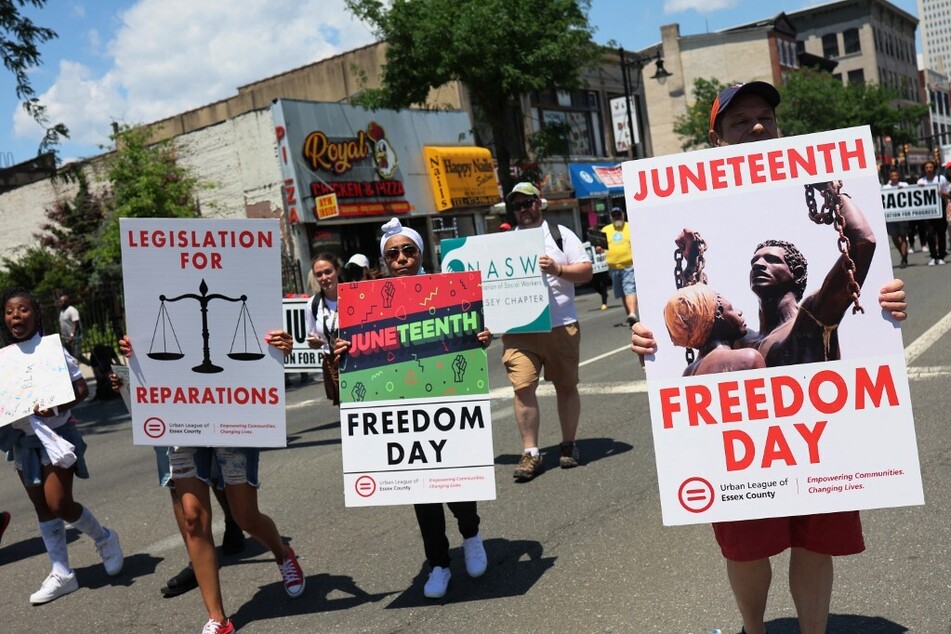New Jersey Reparations Council talks healing the racial health gap in fourth public session
Newark, New Jersey - In its fourth public session, the groundbreaking New Jersey Reparations Council (NJRC) uncovered the state's public health crisis and its unbroken ties to the legacy of US chattel slavery.

The NJRC was convened by the New Jersey Institute for Social Justice and launched on Juneteenth 2023. It consists of more than 55 experts organized into nine committees, all tasked with examining the state's legacy of enslavement and racial discrimination and developing a slate of policies to address those harms.
The council's first session laid the groundwork by outlining the history of slavery in New Jersey, from its inception as a European colony in the 17th century to its ratification of the 13th Amendment. The second session examined past and present segregation in the state, while the third session explored the role of faith and Black resistance in combatting white supremacy.
In the fourth session, held on Thursday, the Health Equity Committee exposed the far-reaching threats to Black health and livelihood in New Jersey, from the womb to the tomb.
Panelists shared data indicating that Black New Jerseyans have a lower life expectancy at 72.2 years compared to 78.4 years for white residents in 2020, with Black residents more likely to die from eight of the state's 10 leading causes of death. On top of that, a pregnant Black person in New Jersey is around seven times more likely to die of maternity complications than a pregnant white person, regardless of education or income.
"From the moment a Black infant is born in this state, an infant that is often born too early and often too small, to the moment that that Black person dies as a not really old person, Black people in New Jersey are significantly more likely to die at every stage of life when compared to their white, Hispanic, and Asian counterparts," said committee co-director and Vice Chancellor for Interprofessional Programs at Rutgers Biomedical and Health Sciences Dr. Denise Rodgers.
As the committee went on to show, these pervasive disparities cannot be chalked up to the choices and behaviors of patients. Rather, they are by design, tracing their roots back to the trafficking of the first enslaved people to the state in the early 1600s.
Tracing the roots of the racial health gap

From the earliest days of slavery in New Jersey, white people subjected Black people to horrific abuses which benefitted white communities at the expense of Black life and health.
"It is impossible to understand the persistence of undesirable Black outcomes from birth to death without interrogating the role that American slavery has played in defining the Black body as less than human – literal property," said Anna Branch, senior vice president for equity at Rutgers University.
"This legacy of structural dehumanization, the designation of slaves as three-fifths of a person, created psychological separation that made it easier to subject them to the brutally inhumane, legally sanctioned treatment that the economic system of slavery required," she added.
In particular, forced breeding, rape, and sterilization of women; brutal, uncompensated labor; and widespread practices of torture wrought havoc on Black communities. At the same time, unethical experimentation and the use of stolen Black bodies in research led to many medical developments we know today.
These atrocities did not end with the abolition of slavery, as forced labor, medical experimentation, and sterilizations continued. On top of that, the systematic redirection of resources and opportunities from Black communities into white communities has helped to create the conditions responsible for today's stark health disparities.
"It is only by cutting off the consequences from this nation's unique history of chattel slavery that we can make pervasive and sustained progress," insisted Rutgers Law School Professor Kimberly Mutcherson.
Exploring the "negative feedback loops" of racism

New Jersey's racial health gap is inherently linked with structures designed to maintain white power and privilege.
"Who has historically been made the enemy in the country, but also more specifically, in the state of New Jersey? Black people," said Marcus Sibley, chair of the New Jersey Progressive Equitable Energy Coalition.
"There's a paranoia when you wrong people, as you fear the inevitability of revolution and retaliation. And what's the easiest way to ensure your enemy is never strong enough to defeat you? You keep them weak. You impact their health."
Sibley went on to outline how environmental racism limits Black New Jerseyans' access to the necessities of good health, including clean air and water, adding to the damages wrought through redlining and segregation.
Experiencing anti-Black discrimination can cause trauma and stress that may be passed down to the next generation. This can have a further deleterious effect on physical and mental health, especially as New Jersey's $300,000 racial wealth gap leaves many Black people consistently at a disadvantage.
Dr. Chris Pernell, founder and CEO of The Esther Group, explained, "Accumulated wealth is associated with a power in society, and that power rooted in a caste system allows certain people to have access to privilege, have access to opportunity, and other people to be locked into structural, social, political, cultural, financial, psychological, and physical realities that not only shape their health in unhealthy ways but also shape their access to opportunity."
"By shaping access to opportunity, it performs an almost negative feedback loop, which also impacts their mind, which also impacts their body, which also impacts their immune system, which also impacts their DNA," she continued.
"This toxic stress of having less access to power because of discriminatory rules and discriminatory norms really leads to a weathering on Black lives."
Pursuing healing through reparations

In addition to outlining the longstanding harms facing Black New Jerseyans today, the NJRC is tasked with drafting proposals that will help put the state on the path toward true freedom and equality for all.
The Health Equity Committee will contribute to that blueprint, incorporating knowledge gleaned from expert research and public testimony.
In particular, several participants in Thursday's session called for greater investments in developing research, doula care opportunities, community-integrated health care settings, and health professional training programs, as well as removing the barriers limiting Black providers.
Those measures will be tied in with a broader vision aimed at expanding access to the essentials of good health and a good life for Black New Jerseyans and redefining how residents engage with one another in a multi-racial democracy.
The NJRC is set to release its final report and recommendations on Juneteenth 2025. An interim report is expected on Juneteenth of this year.
The council's next virtual public session will take place on April 17 at 6:30 PM ET, led by the Public Safety and Justice Committee. Garden State residents are invited to make their voices heard by submitting public comments at any time on the council's website or live during the meetings, with pre-registration required.
Cover photo: MICHAEL M. SANTIAGO / GETTY IMAGES NORTH AMERICA / GETTY IMAGES VIA AFP

